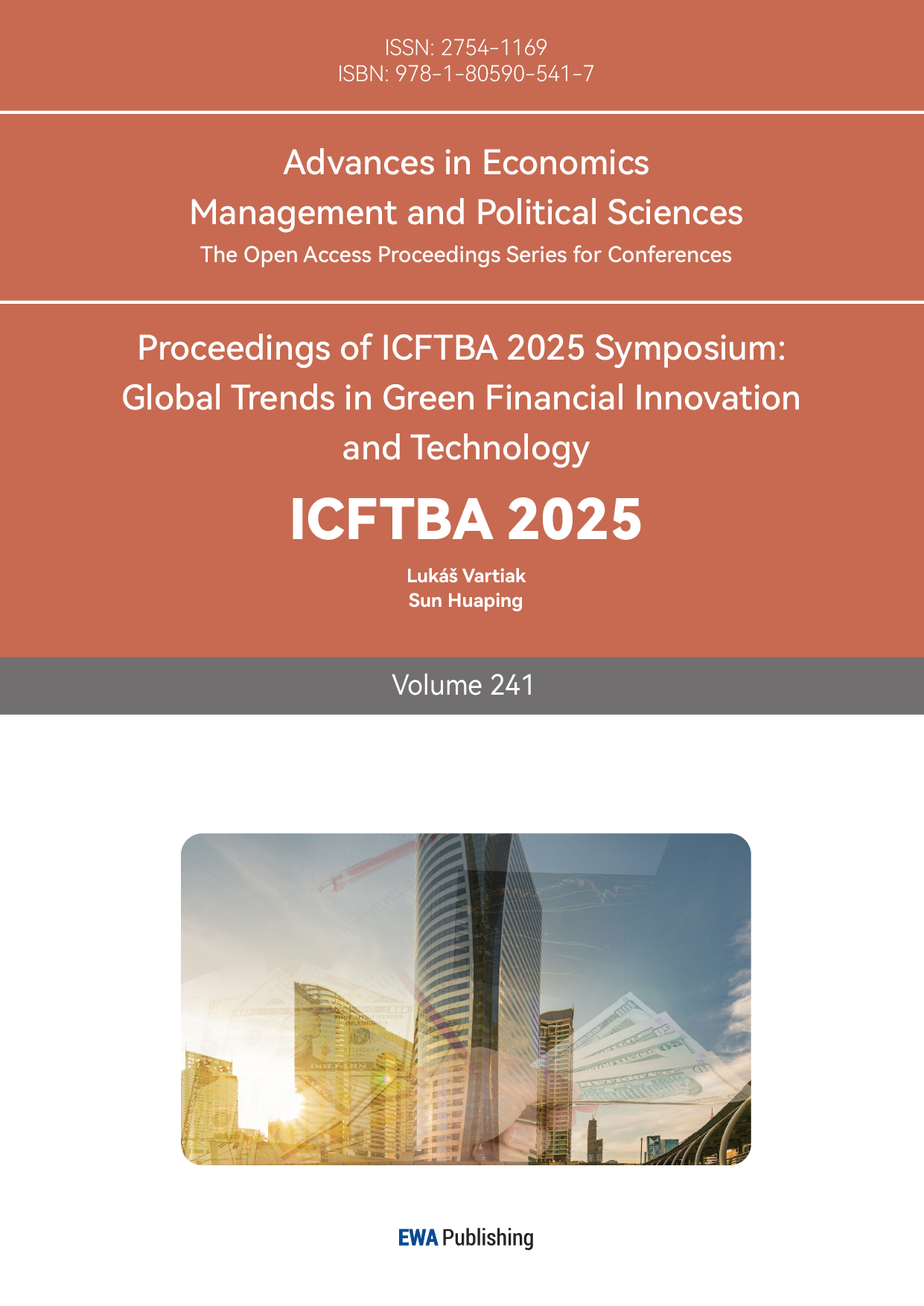References
[1]. Birindelli, G., et al. (2025). How important are ESG ratings for financial institutions? Evidence from corporate leverage ratios across Europe. International Review of Economics and Finance, 102, 104398.
[2]. Zou, Y., & Tian, X. (2025). Influencing factors and economic consequences of ESG rating disagreements: A literature-based study. Finance and Accounting Research, (05), 65-71.
[3]. Yu, S., & Shi, H. (2025). The impact of artificial intelligence policy on corporate ESG performance: Empirical evidence from National AI Innovative Application Pilot Zones. Western Forum, 35(04), 52-67.
[4]. Wang, J. (2025). Digital transformation, environmental regulation and corporate ESG performance: Evidence from China. Corporate Social Responsibility and Environmental Management, 32(2), 1567-1582.
[5]. Chen, P., & Li, C. (2025). Generative AI empowers financial data governance: Value implication, evolutionary risks, and realization path. Academic Exploration, 1-12.
[6]. Zheng, Y., & Wang, Z. (2025). Research on the implementation mechanism of ESG rating system based on ChatGPT. Friends of Accounting, (01), 87-93.
[7]. Dash, A., & Mohanta, G. (2025). Drivers of sustainable financial consumerism: Exploring the impact of artificial intelligence, finfluencers, financial literacy, and product quality on sustainable development. Cleaner and Responsible Consumption, 18, 100306.
[8]. Liu, H. (2025). Artificial intelligence development and household financial asset allocation. International Review of Economics and Finance, 102, 104365.
[9]. Cheng, Y., & Li, H. (2025). The impact of ESG performance on corporate digital transformation. Environment, Development and Sustainability, 1-28.
[10]. Attia, E. F., & Almoneef, A. (2025). Impact of ESG on firm performance in the MENAT region: Does audit quality matter? Sustainability, 17(13), 6151.
[11]. Sklavos, G., et al. (2025). Unmasking greenwashing in finance: A PROMETHEE II-based evaluation of ESG disclosure and green accounting alignment. Risks, 13(7), 134.
[12]. Zhao, Y., Dai, R., & Nagayasu, J. (2025). Generative AI: The transformative impact of ChatGPT on systemic financial risk in Chinese banks. Pacific-Basin Finance Journal, 93, 102829.



